June 9, 2008
|
It’s always thrilling to hear encouraging reports from our churches. I recently received this email from Chris Little (right, below), senior pastor of Mount Pleasant UB church in Chambersburg, Pa. That is one of the churches we’ve been working with in the year-long consultation process, which we’ll wrap up with a service on June 22. Here is what Chris wrote:
 “Just wanted to pass on a God moment from Sunday. The scripture was the stoning of Stephen. I used it as a time of forgiving and being forgiven. Ron Cook, months ago, gave me the idea of using a paper shredder with the congregation and it seemed appropriate, so out on a limb I went.
“Just wanted to pass on a God moment from Sunday. The scripture was the stoning of Stephen. I used it as a time of forgiving and being forgiven. Ron Cook, months ago, gave me the idea of using a paper shredder with the congregation and it seemed appropriate, so out on a limb I went.
“When the sermon ran to its conclusion I told everyone they had a choice to make. Either hold on to your rocks and be in bondage to bitterness, or throw away your rocks and find the freedom of forgiveness. I placed an insert in the bulletin and had them write either names of individuals they needed to forgive, their own name if they were struggling with forgiving themselves, or even particular sins of which they are guilty. I invited people to come forward and find forgiveness by shredding the “stones” and throwing them away.
“Then I went to find a seat and pray, wondering if anyone was getting it. I was overwhelmed by the response. During our traditional service we shredded stones for the entire duration of “Amazing Grace,” plus. When I finally got up the courage to take a peak at what was happening, there was a line down the center of the church waiting for a chance to get to the shredder.
“During the second service (our smallest), it did not take nearly as long but the participation was wonderful. One woman was completely broken before God, sobbing at the altar in that middle service.
“Third service was abundantly beautiful. Young and old participated. Who knew the kids were even listening? Lines down both sides of the church as well as the center isle. Jesus was so clearly dealing with men and women, boys and girls, helping them not only to experience forgiveness but freedom.
“Jesus was so clearly working in the lives of the people in church this Sunday. When I stood up to address the congregation with words of assurance of Christ’s forgiveness, I saw the brokenness of the people. The tears in people’s eyes nearly took me to tears. I am once again reminded that God is ever faithful. He is engaged in our lives in ways that we can see and sense, and ways that are beyond our normal realm of thinking. What a blessing to see the Spirit of God make such a tremendous difference in people’s lives.”


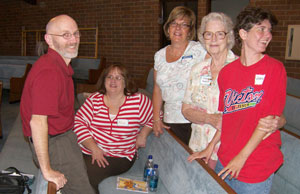 About 120 adults attended the event, most of them from the six sponsoring churches. They included 19 people from Anchor, some of whom are in the photo on the right. Folks from probably a dozen other churches scattered around the city also attended, most having learned about the seminar through a newspaper article.
About 120 adults attended the event, most of them from the six sponsoring churches. They included 19 people from Anchor, some of whom are in the photo on the right. Folks from probably a dozen other churches scattered around the city also attended, most having learned about the seminar through a newspaper article.
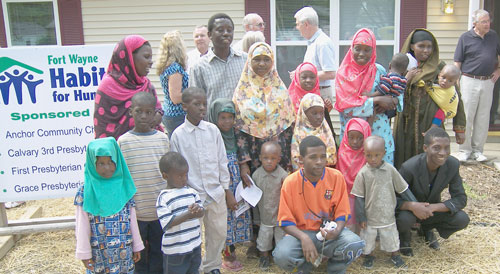
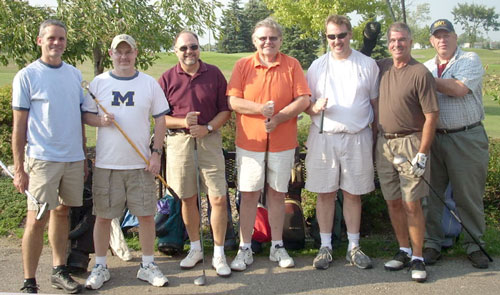
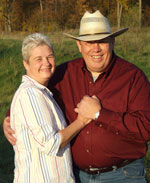
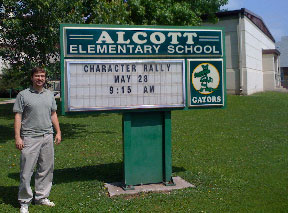 They bought an elementary school for $25,000, though it’s valued at several million dollars. They’re trying to sell their present church, but already have the money needed to buy the school, which is less than two miles away.
They bought an elementary school for $25,000, though it’s valued at several million dollars. They’re trying to sell their present church, but already have the money needed to buy the school, which is less than two miles away. “Just wanted to pass on a God moment from Sunday. The scripture was the stoning of Stephen. I used it as a time of forgiving and being forgiven. Ron Cook, months ago, gave me the idea of using a paper shredder with the congregation and it seemed appropriate, so out on a limb I went.
“Just wanted to pass on a God moment from Sunday. The scripture was the stoning of Stephen. I used it as a time of forgiving and being forgiven. Ron Cook, months ago, gave me the idea of using a paper shredder with the congregation and it seemed appropriate, so out on a limb I went.